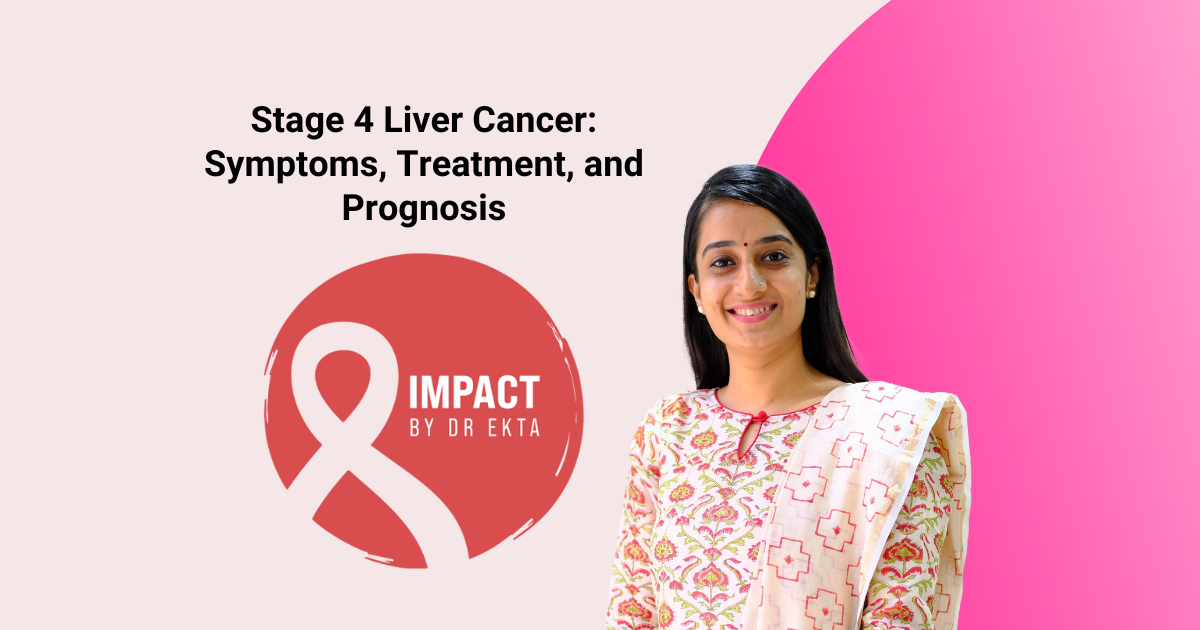When I sit across from a patient to explain that their liver cancer is at stage 4, I understand the weight of that moment. It’s one of the hardest conversations we have in oncology. But here’s something I always emphasize: while Stage 4 liver cancer is advanced, there are still ways we can manage it, support you, and improve your quality of life.
Key Takeaways:
- Stage 4 liver cancer means the cancer has spread beyond the liver to other organs.
- Common symptoms include jaundice, weight loss, and persistent fatigue.
- While it’s not typically curable at this stage, treatments can slow the disease and reduce symptoms.
- Supportive and palliative care are essential to improving everyday life for patients.
- Early awareness and regular liver checkups matter more than ever.
What Stage 4 Liver Cancer Really Means
By the time liver cancer reaches stage 4, it has spread often to the lungs, bones, or lymph nodes. It’s not limited to the liver anymore, which makes treatment more complex. At this stage, we focus on controlling the disease rather than curing it. I often describe it as shifting gears from fighting to stabilizing.
Here’s what defines stage 4 liver cancer:
- The tumor has spread to distant organs such as the lungs or bones.
- It may have reached major blood vessels around the liver.
- The lymphatic system might be involved.
- It’s typically unresectable, meaning surgery is not a curative option.
The Symptoms You Should Watch Out For
Sometimes, liver cancer doesn’t cause obvious symptoms early on. But as it advances, especially to stage 4, many patients I work with begin to notice:
- Unexplained weight loss, even when eating well
- Persistent fatigue that doesn’t improve with rest
- Abdominal pain, often in the upper right side
- A swollen abdomen or bloating
- Yellowing of the skin and eyes (jaundice)
- Nausea, vomiting, and a loss of appetite
- Enlarged liver or spleen, sometimes felt during a physical exam
These signs often bring patients into the clinic, and at that point, imaging and blood tests help us confirm the diagnosis. If you’re concerned about liver cancer symptoms, I urge you not to wait. It’s better to check and catch things early.
How We Treat Stage 4 Liver Cancer
Once we confirm the diagnosis, our next step is to develop a treatment plan. For stage 4, the goal isn’t usually to cure but to control symptoms, improve function, and potentially extend survival. The treatments I recommend typically include:
Targeted Therapy: Medications like sorafenib or lenvatinib block cancer cell growth at the molecular level. These can slow progression and sometimes shrink tumors.
Immunotherapy: Drugs such as nivolumab or atezolizumab help your immune system recognize and attack the cancer. This has changed the landscape of late-stage cancer treatment in the last few years.
Chemotherapy: Though not always the first line for liver cancer, chemotherapy may be used when other treatments are ineffective or if the disease is particularly aggressive.
Local Treatments: While less common in stage 4, some patients may benefit from procedures like transarterial chemoembolization (TACE), which delivers chemotherapy directly into the liver, or radiofrequency ablation (RFA), which burns tumors with heat.
Radiation Therapy: We may use this to manage pain or symptoms if tumors are pressing on nerves or other vital organs.
Each plan is personalized. I always tell my patients your overall health, how well your liver is functioning, and where the cancer has spread all play into our decision-making.
What Is the Prognosis?
Naturally, one of the first questions patients ask me is: how long do I have? While this is deeply personal and varies case by case, I share the honest statistics so families can plan and prioritize care:
- The five-year survival rate for distant-stage liver cancer is around 3%.
- Without treatment, median survival may be just a few months.
- With therapy, many patients live longer and with improved quality of life.
These numbers are sobering, but they don’t define you. Some patients respond well to targeted therapies, and with good supportive care, many continue to live meaningfully traveling, working, even celebrating milestones with family.
The Role of Support and Palliative Care
Stage 4 is physically and emotionally draining, and I always recommend integrating supportive care right from the start not just near the end. Palliative care isn’t about giving up. It’s about feeling better and having more good days.
We address:
- Pain management
- Nutritional support to maintain strength
- Emotional counseling or therapy for patients and families
- Nausea control and other symptom relief
- Fatigue and mobility challenges
I often refer patients to dietitians, psychologists, and social workers as part of a whole-person approach. And if you’re considering home care or hospice, know that it’s a decision made with strength, not weakness.
Final Thoughts
Stage 4 liver cancer changes everything. But it doesn’t mean you have no control. My goal is to walk beside you, offer honest answers, and give you options tailored to your needs and goals. I want you to understand that even in advanced stages, there is dignity, choice, and care available to you. If you’re worried about your symptoms, or if you or a loved one have been diagnosed with liver cancer, please reach out to your oncologist. Ask the hard questions. Take notes. Bring someone with you to appointments. And above all don’t lose hope.
Explore more trusted resources:

